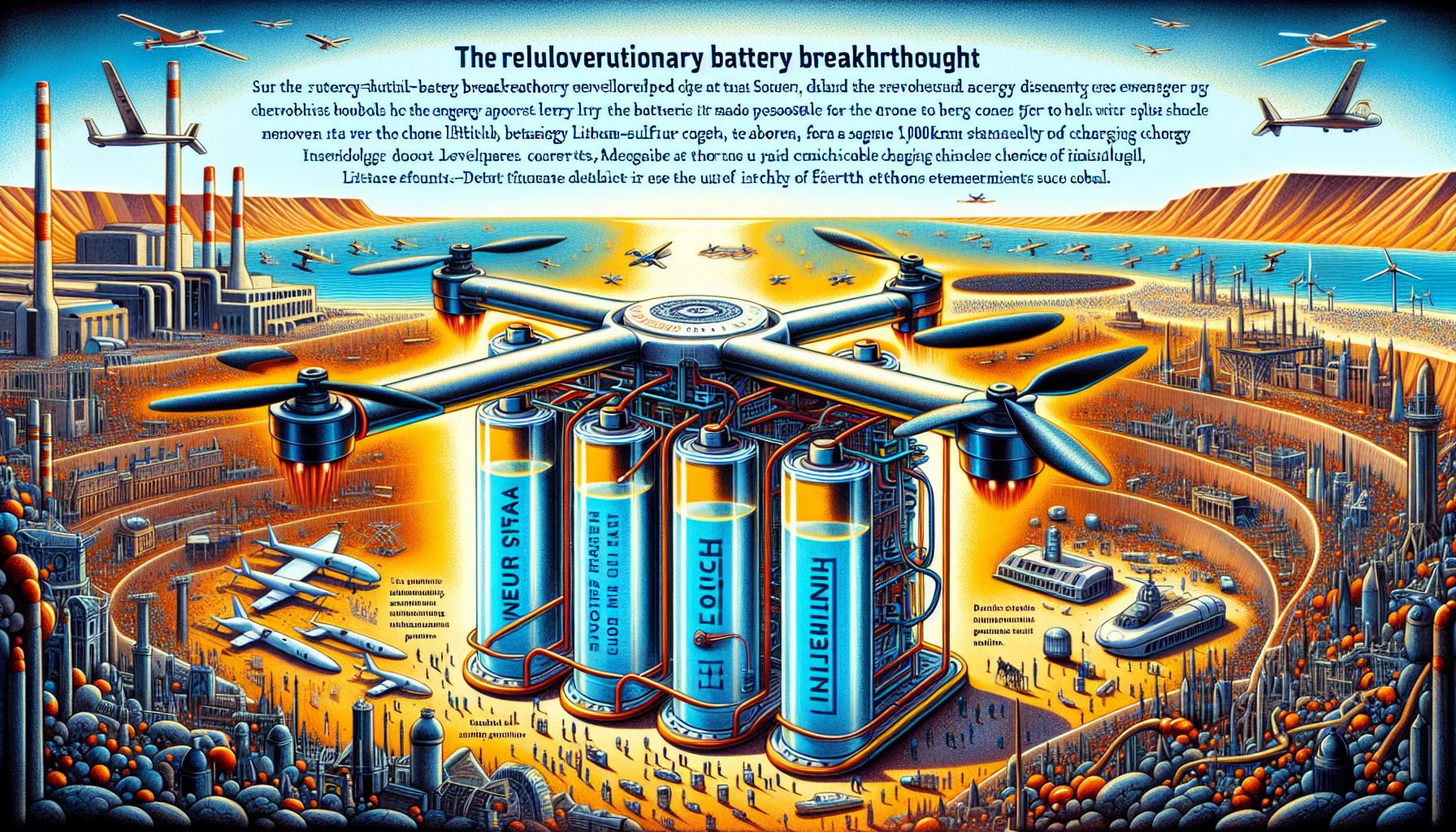Revolutionary Battery Breakthrough Could Double Drone Flight Times

Melbourne, Wednesday, 27 November 2024.
Australian researchers at Monash University have developed a groundbreaking lithium-sulfur battery that promises to revolutionize electric aviation. The technology offers twice the energy density of conventional batteries, potentially enabling drones to fly 1,000 kilometers on a single charge. This development, combined with ultra-fast charging capabilities, marks a critical step toward making electric drone taxis commercially viable. The innovation also presents a more environmentally friendly alternative by eliminating the need for rare earth minerals like cobalt, positioning Australia as a leader in sustainable battery technology.
Innovative Approach to Battery Technology
At the heart of the breakthrough is a novel chemical composition that accelerates battery performance. Engineers at Monash University have effectively combined polyvinylpyrrolidone (PVP) with iodine, significantly enhancing the charge and discharge rates of lithium-sulfur batteries. This advancement addresses the longstanding issue of slow charging in existing battery technologies, a critical barrier to the widespread adoption of electric vehicles and drones [1].
Implications for Electric Aviation
The implications of this innovation extend beyond just electric cars to include commercial drones and electric vertical takeoff and landing vehicles (eVTOLs). The improved energy density means these vehicles can store more energy in smaller spaces, making them ideal for applications requiring high power output during takeoff and energy efficiency during flight. The ability to travel longer distances on a single charge not only supports the feasibility of drone taxis but also addresses concerns around range and recharging times [2].
Commercialization and Market Impact
To push this technology from the lab to the market, the research team has established a start-up called Ghove Energy. This company aims to further refine the battery technology and explore additional innovations that could reduce the lithium content in the batteries, making them even more sustainable. Ghove Energy is actively seeking investors to support its commercialization efforts, reflecting the competitive landscape in battery technology advancements with other global players like China’s CATL also racing to develop aviation-specific batteries [1][3].
Global Competition and Future Prospects
This breakthrough positions Australia prominently in the global race for advanced battery solutions. As demand for cleaner, more efficient energy sources grows, technologies like the lithium-sulfur battery developed at Monash University offer promising solutions. The potential for these batteries to power not only drones but also long-haul electric vehicles and possibly even small aircraft highlights their transformative potential. With ongoing development, such innovations could redefine energy storage standards across multiple industries [4].

